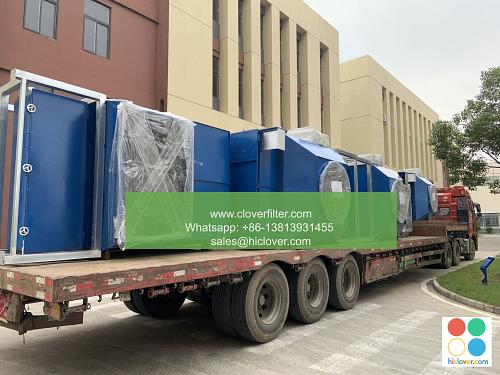Factors That Affect Your Air Quality Filter’s Sustained Cleaning Power

Air quality filters are an essential component of any indoor air quality (IAQ) system, playing a crucial role in maintaining a healthy and clean environment. However, their sustained cleaning power can be affected by various factors, which can impact their overall effectiveness and efficiency. In this article, we will explore the key factors that influence the air purification capabilities of your air quality filter, highlighting various application areas and the importance of regular maintenance.
##
Filter Type and Quality
The type and quality of your air quality filter are critical factors that determine its sustained cleaning power. Different types of filters, such as HEPA filters, activated carbon filters, and ultraviolet (UV) light filters, have varying levels of air purification capabilities. High-quality filters with a high minimum efficiency reporting value (MERV) rating can capture more particulate matter and gaseous pollutants, ensuring better indoor air quality.
##
Airflow and Filter Loading
The airflow rate and filter loading can significantly impact the sustained cleaning power of your air quality filter. A higher airflow rate can lead to increased filter loading, which can cause the filter to become clogged and reduce its air purification capabilities. Regular filter maintenance, such as cleaning or replacing the filter, is essential to maintain optimal air quality and sustained cleaning power.
##
Environmental Conditions
Environmental conditions, such as temperature, humidity, and air pollution levels, can also affect the sustained cleaning power of your air quality filter. Extreme temperatures and humidity levels can impact the filter’s air purification capabilities, while high air pollution levels can overload the filter and reduce its efficiency. Understanding the environmental conditions in your application area is crucial to selecting the right air quality filter and maintaining its sustained cleaning power.
##
Maintenance and Replacement
Regular maintenance and replacement of your air quality filter are essential to maintaining its sustained cleaning power. Neglecting to clean or replace the filter can lead to a decrease in air purification capabilities, compromising the indoor air quality and potentially causing health problems. It is recommended to follow the manufacturer’s guidelines for filter maintenance and replacement to ensure optimal air quality and sustained cleaning power.
##
Application Areas
Air quality filters have various application areas, including residential, commercial, and industrial settings. In residential settings, air quality filters can be used to improve indoor air quality and reduce allergy symptoms. In commercial settings, such as offices and schools, air quality filters can help maintain a healthy and productive work environment. In industrial settings, air quality filters are critical for worker safety and process control.
In conclusion, the sustained cleaning power of your air quality filter can be affected by various factors, including filter type and quality, airflow and filter loading, environmental conditions, and maintenance and replacement. Understanding these factors and selecting the right air quality filter for your application area can help maintain optimal indoor air quality and sustained cleaning power. Regular maintenance and replacement of your air quality filter are essential to ensuring its continued effectiveness and efficiency in air purification. Prompt

